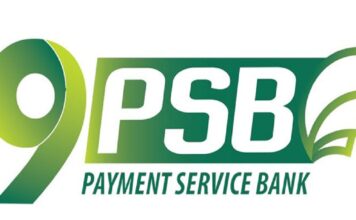Who Wants to Raise Capital for Start-Up, Small Business?
The first language many people, entrepreneurs understand so well is business capital but there is a problem, it is not readily available –anywhere.
How to raise fund for start-ups or other small businesses is a sensitive advisory service, and the one which demands practical experience.
Though, it has become a Tom, Dick and Harry things in the most recent time.
It is good to know that there are millions of articles that have been written on how to fund a start-up or small and medium scale business, but more than 90 per cent of those articles do not incorporate local factors.
Here is the question: Do you need to find funds to finance an innovative start-up or new sources of funding for your business?
In practice, when some Nigerian wannabes want to start businesses, they envisage success without thinking about what could really go wrong in the process.
In business, reality is often different from that fantasy. The question is: are you the first person to think about such business?
Think Amazon, Apple and other corporate giants – they start just like you may be planning.
As the saying goes, “A million dream is all it’s gonna take, indeed”.
If your idea is not a break out from the crowd, what makes you think people would prefer to deal with you when there are thousands of competitors around?
No, this is not to discourage thinkers but again, fantasy and reality are not always at equilibrium!
Let’s say you have a good business plan, and what is needed is means of financing it. How much would you pay on every Naira you access from investors?
Many people don’t know that cost of financing a business could make or destroy a good business. And then, what are the terms and conditions that apply?
Hey, raising fund should not be celebrated, really! But everybody see capital raise announcements as a kind of success.
When you raise fund, do you know what just happen? You’ve got served!
If interest rate, terms and condition and perhaps other related requirement are heavy, your best choice is to walk away.
Now, let’s be practical, it is difficult to walk away when you see bags of cool cash sitting in your front.
But, you are about to lose something. Those that are negotiating with you don’t love you – they may never do.
They are doing what pays their bills. They are sending the free cash flow on an errand with one motive – strong returns.
In their quests to raise funds, we have seen Nigerians that have fronted beautiful innovative businesses but lose out eventually.
How can you be looking to use somebody’s money but don’t want to get served?
For some to get up; there is need for cash outlay they don’t have. Without being desperate about it –quite unlikely – they could hit good deal.
First rule that must be considered when there is financial support from anywhere – banks, venture capitalists etc. is “interest rate”.
If your cost of capital is higher than actual return on the business, you are giving heart attack a chance to succeed.
For equity purchase by an investors, it is more likely you would hit the iceberg if you deal desperately – look around, there are legal issues lurking around on funding, terms and condition.
Many entrepreneurs are not schooled to know ownership and control is two different things and financing plays a big role in that.
If you own your cash, your business is your business, and then you can be the owner and maintain control over decision making process.
You can be the owner of a business, but you are not in control. And you can be in control but you are not the owner of the business.
What do you do when you don’t really know what to do in situation like this? Talk to a consultant that has skills, experience and network.
The devil is in the detail, always read documents before signing. Don’t take someone’s money thinking it is Christmas gift.
There is no free food even in Freetown!
So, how are Nigerians raising funds to finance their businesses really in this virus-damaged economy?
Established businesses have less to worry about other than rates – except when they are delving into unknown territories as part of their expansion plan.
Here are ways to support your project.
In Nigeria and elsewhere, it’s very rare to find an investor around the corner ready to give liquidity even if your business idea is really innovative.
With the coronavirus, finding investors in Nigeria could be a bit herculean but don’t sweat it, it is not impossible.
Money always goes to where it is treated well!
The first warning is; if your business start-up does not have a balance sheet or profit yet, there is nothing really to buy into.
There’s no need to despair, though. You can always fix a financial statement for the venture.
If you believe in the business, or your project is already started, and you are willing to invest time and effort you can be able to get the capital you are looking for through various forms of financing.
The limit is your creativity, the credibility of your business and the knowledge you have of how to find these scarce funds.
Work with this, nobody will trust you or your business if there is no traces of experience, dexterity and landmark achievements.
Here is the gist, you can convince anyone in the whole wide world you are the best – it is on you to do so.
Here are methods of getting capital in 2021
Take first risk with your personal funds
The first and easiest way to finance an activity is to fish from your piggy bank. Please, the minimum you could do is to have some savings.
That is not a rocket science. You might have to pick a pay job for a while. Except you are a millennial Einstein, you don’t go out seeking funds on empty pocket.
If savings probably aren’t enough, you can still consider the idea. At that point, bootstrapping would help, and then scale up.
Until you have fully exhausted cheaper options, you don’t have a need for business loan at the beginning of a venture.
Finding the money to open a business or expand it may take a little longer, but you don’t have to access money loans or give up control over your business.
Many times, however, a start-up needs a lot of fuel in the birth and expansion phase. It needs to “burn liquidity”, almost always much more than you have in your pocket.
So if you don’t have enough availability to fund yourself then move on to the next solutions.
Ask friends or family for help
Bryan said it is the method that Americans call 3F (family, friends & fools) and consists precisely in financing the start-up, or a business activity in general, with the money of their circle of closest acquaintances.
Jeff Bezos also opened Amazon.com asking his father for the money.
So why not talk about your project with friends or family and see if any of them are interested?
In Nigeria, you are very likely not to succeed with this but it worth trying anyway. Family chemistry here is what it is.
Yeah, we do love ourselves but don’t forget more than half of the population is living below poverty level. Next…
3. Business Grants
Have you heard about Anchor Borrowers Program? What of Trader Moni etc? Though, these are not grant but it comes close to getting you off the grand.
Did you know that sometimes the state makes money available for start-ups or businesses in need like yours?
Non-repayable loans are forms of unconventional loans which do not have to be repaid.
Many local and foreign organisations have a well-managed funds for startups, women, low-income people who want to dedicate themselves to an innovative project, unemployed people who have the desire to start a business and so on.
4. Crowdfunding campaigns
Does a crowdfunding campaigns work in Nigeria? I feel Nigerians have not fully explored this avenue.
It could mean something, especially if your business ideas have wider impacts on the growing population.
Such campaigns are emotional driven, people give on compassionately.
If your project has a strong innovative side, you can call in small investors from all over the world eager like you to finance your business.
Via online platforms, you could give equity to potential investors, or obtain debt capital.
Bryan said as an applicant you will need to create an accurate presentation of your project, explaining in detail the business model and the potential of the idea.
5. Start-up incubators
If a business to fund is a fledgling start-up you can help launch it and grow it by leaning on an incubator.
In Nigeria, incubators are very popular organisations and are often associated with major universities, local business development authorities or even large companies.
Most startup incubators don’t provide funds or money, but they do provide free resources like facilities, offices, network connection, strategic consulting, and more.
In return they can ask you for a share of the company, getting potential returns from your future success.
It is noteworthy to say more technologies related ventures have been incubated than any other innovative business ideal.
6. Business Angel
Sometimes it would take a lot of help from above to finance a company. It is very rare, but some entrepreneurs have actually met their “angel”.
A business angel is a professional with great economic availability determined to believe in your start-up and invest his money to see it grow.
He has probably already had experience as an entrepreneur, so his contribution to the cause could be not only economic.
Maybe you’ve already heard of Peter Thiel, financier of big companies like Facebook, PayPal, Quora or TransferWise, once simple start-ups with high potential.
If, on the other hand, the company you have in your hands is a startup, move on to the next method without lingering too much.
Hardly a bank will give you a lot of credit to launch a project with a strong risk potential, unless you have big guarantees to offer as collateral.
8. Venture Capital
Where is your start-up? Have you already shown that you are promising?
If the company has passed the stress test of the first few months and you can see the first results in terms of turnover it can be submitted to the attention of venture capital.
These are (even substantial) funds from institutional investors such as banks or financial companies, liquidity that could drive the growth of your business.
The goal of venture capitalists is precise: to finance the innovative start-up to turn it into a leading company in the medium to long term.
In return, however, they take over shares in the company and often ask to sit on the decision-making board in order to influence the direction the project will take.
In essence, this is a huge injection of liquidity, but it undermines your governance independence. Are you willing to accept that?
9. Agreed with a partner
This is a beautiful decision that must be taken very cautiously. Sometimes, when money is involved, what you see is not what you get.
In spite, if you know an important customer or a complementary business to yours that couldn’t do without you, that is a potential partner.
African Banks are small but Profitable – The Banker
Read also: Declined Investment in Productive Assets Spells Trouble for Poorer Nations
If you’re lucky enough to have met him asking a business partner for help, it can be yet another way to fund your business.
Who Wants to Raise Capital for Start-Up, Small Business?




























































































